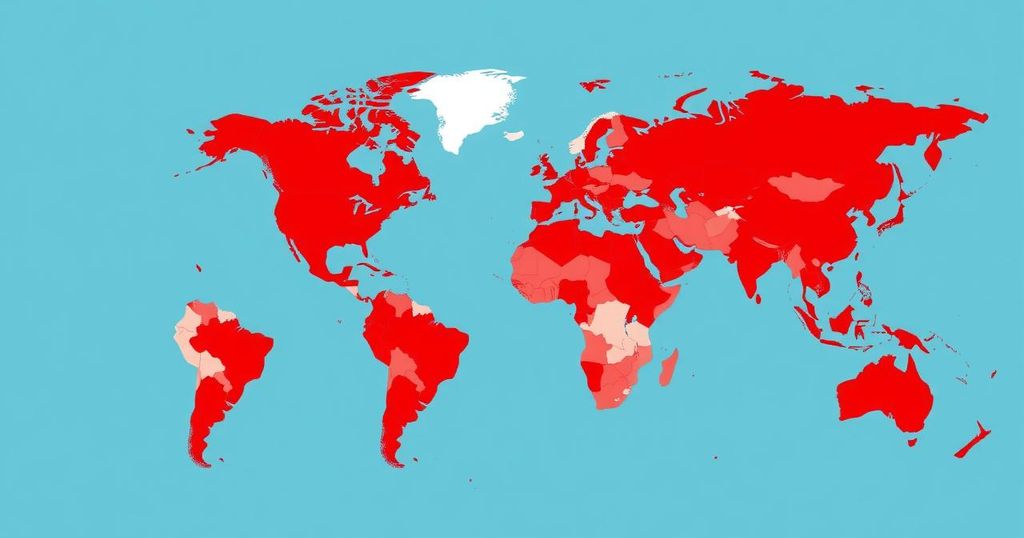The U.S. Department of State has issued Level 4 travel advisories for several countries, including Afghanistan, the Democratic Republic of the Congo, and Ukraine, citing severe safety risks such as crime and political instability. As travel warnings increase, tourists are urged to rethink plans to these regions while the travel industry adapts to heightened safety concerns ahead of the spring break season.
The U.S. Department of State has recently escalated travel warnings for numerous countries, particularly highlighting destinations popular during the spring break season. Countries such as Russia, Jamaica, Colombia, and Ukraine now face Level 4 advisories indicating “Do Not Travel” due to rising concerns over crime, political instability, and terrorist activities. This shift in travel advisories reflects a growing perception of security risks confronting American citizens abroad, especially as spring break approaches.
Despite these listings, several of these nations have historically drawn significant numbers of American tourists, attracted by their cultural appeal and entertainment options. However, the latest updates imply a desperate security situation, where incidents of violent crime, including kidnapping and civil unrest, have surged in these regions. Consequently, the U.S. government has issued urgent safety recommendations for American travelers.
A Level 4 advisory represents the gravest warning within the U.S. travel advisory system, prompted when safety and security risks escalate dangerously due to conflict or extreme conditions. As of February 2025, countries including Afghanistan, the Democratic Republic of the Congo, Iran, and Haiti are under this advisory, each facing severe security threats. Therefore, American citizens must carefully consider their travel plans regarding these regions.
Examining individual countries reveals specific issues justifying these advisories. Afghanistan, for example, is marred by the Taliban’s resurgence and widespread violence, presenting significant risks to travelers, including threats of kidnapping and limited emergency services. Likewise, the Congo grapples with ongoing conflict and armed violence, urging caution among potential visitors.
Consequently, Lebanon, facing turbulent political and economic crises, issues a warning against travel amid its instability and risks of terrorist acts. The Central African Republic and Iraq also pose critical threats to safety, with ongoing violence and the presence of extremist groups.
Moreover, the situation in Ukraine remains dire due to the ongoing war with Russia, elevating risks for American travelers amidst active combat zones. Destinations like Venezuela and Haiti also reveal alarming scenarios: high crime rates and political upheaval make both countries dangerous for individuals contemplating travel.
The ongoing political unrest in Iran and significant deterioration of public safety compound these issues further. Despite these advisory warnings, some travelers might still consider visiting, often unaware of persistent dangers. It is imperative for them to adhere to safety protocols, such as consulting the U.S. State Department’s travel advisory website and enrolling in the Smart Traveler Enrollment Program (STEP).
The travel advisory system emphasizes potential risks associated with crime, political instability, and emergency services, urging travelers to remain informed and cautious. As the travel industry adjusts to these warnings, tour operators, airlines, and travel agencies are likely to adapt their offerings accordingly. Travelers need to approach high-risk destinations with care, as the travel industry will continue evolving due to heightened safety concerns.
As the spring break atmosphere unfolds, American citizens must acknowledge the increased safety threats in various popular travel destinations. The issuance of Level 3 and 4 advisories underscores the essential nature of travel security and informed decision-making for travelers. With the travel industry poised to adapt to these heightened advisories, individuals are advised to maintain vigilance and meticulously plan their vacations to prioritize safety and enjoyment.
Original Source: www.travelandtourworld.com




